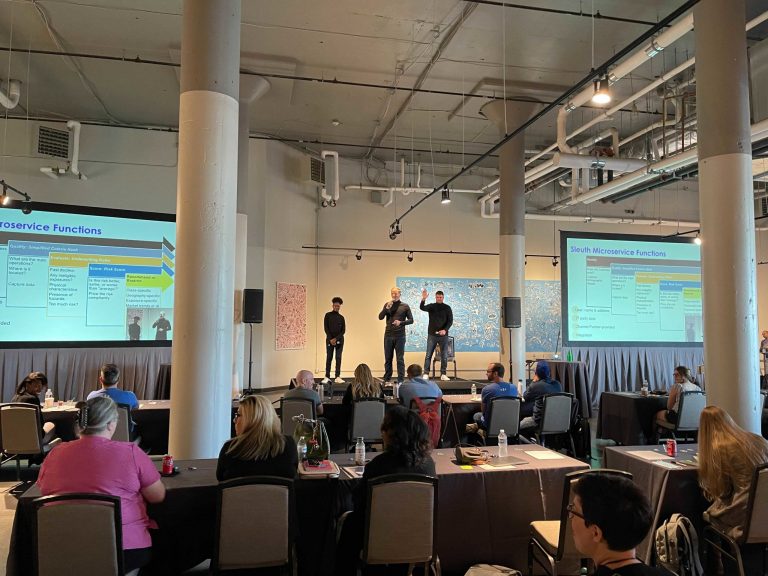Today, Coterie Insurance’s original data scientist, Steve Barnard, is sharing some tips for other data scientists. Through Steve’s tenure at Coterie, our data team has grown to a team of seven. They are constantly innovating and Steve has played a key role in the growth of the team. We’ll kick it over to Steve…
I wanted to write a quick article to share with aspiring data professionals (data scientists, engineers, analysts, etc.) on tips that helped me along the way.
I’ll keep most of these short and provide TLDR versions. If anything interests you, reach out to me and I’m happy to share more.
1. It takes a long time to get good at something, it takes even longer to get noticed for it.
If data was easy, everyone would do it and excel at it all the time; but it isn’t and we aren’t. Data science, like any area of study, takes an amazingly long time to garner expertise. You have to be okay with challenges, failure, success, and plateauing. The big point here is to take it one step at a time and be consistent.
2. Communication is everything.
Data scientists and other data professionals work with a ridiculously large number of folks, from various divisions at their companies (if it’s a good one). Learn to communicate well. Learn to say no. Learn when to say yes. Learn when to debate, when to persuade, and when to confirm. Learn storytelling. Be clear (explain the what, the why, and the so what), and above all, communicating does not solely involve speaking; ears exist, use them.
3. Learn self-discipline.
That’s right, learn it. Practice makes perfect. Do something small, like read for 10 minutes, walk around the block, do 10 pushups, floss your teeth before bed, go to bed on time, do anything really; but do it with an unwavering level of consistency. You will thank yourself in 10 years. Proactive always beats out reactive.
4. Block off time to focus on your work
Use technology as a tool, not a master. Block out time on your team/work calendar for deep focus; a time where you have no social media, no phone, no family. Only you and your work (personal or professional). Leave your normal working location if you have to, but take time to do what matters for you and your career; working for others all of the time takes away from the thing that makes you the most valuable, your happiness and sense of self-worth. If you hate what you do, how could you want to do anything for others with any level of quality? Seriously, block off time and get sh*t done.
5. Don’t give up your passion projects.
Simple, follow your dreams, 15 minutes at a time. Start small and be consistent (sound familiar?). Passion is key for growth, find your big ideas and follow them, learn to execute on them. Learn to love failure as well as success. The big point here is, don’t wait for the perfect storm to start your passions, just go out and do it stop being scared.
6. Networking is incredibly important, the earlier you understand this the better off you will be (especially if you want to be an entrepreneur).
This is so important, opportunities are everywhere. If you aren’t networking, which is just talking to others with a sincere interest about who they are and what they do, then you are missing out. You miss out on friendships, jobs, knowledge, lessons in life, and so much more. Successful people generally like talking about how they came to be successful and I haven’t met one yet who hasn’t wanted to discuss their successes and failures yet. So go message someone and start a discussion about what career success means to them.
7. Don’t stop learning your craft (code challenges, katas, passion projects, practice, etc.).
Never stop learning. Go do challenges on HackerRank, Codewars, or LeetCode. While it’s not everything to be good at competitive SQL and python, these types of scenarios can really help by exposing you to the outermost reaches of what code can do and providing applied examples for you to learn from. Also, consider reading books on data science, coding, algorithms, decision making, leadership, and anything else you feel will help you; reading is huge.
8. The fundamentals are key, don’t lose them.
Coding, visualization, statistics, Github, command-line, math, and digital communication. Make sure you don’t become rusty on these topics; technology, data science, and the tools that come with it are changing at a break-neck pace. The one thing that holds true though is that they all stem from the fundamentals. Keep up on your craft and you can weather any changes.
9. Thank others regularly.
You can’t and won’t do everything on your own. Thank those who help you.
10. Money is not everything.
Money is something, but not everything. Don’t pursue money solely. Money cannot be loyal, money cannot speak, money cannot thank, money only buys. If you pursue money, you are giving up something else (opportunity cost). Money may come with a dream job, but the dream job wasn’t the dream because of money. Follow passion, work hard, and survive. Money will find a way to you.

That’s all I have for now. If you’re working towards a data science or data science-related position, keep up the good work, and remember good things take time, and even more to get recognized for it.





